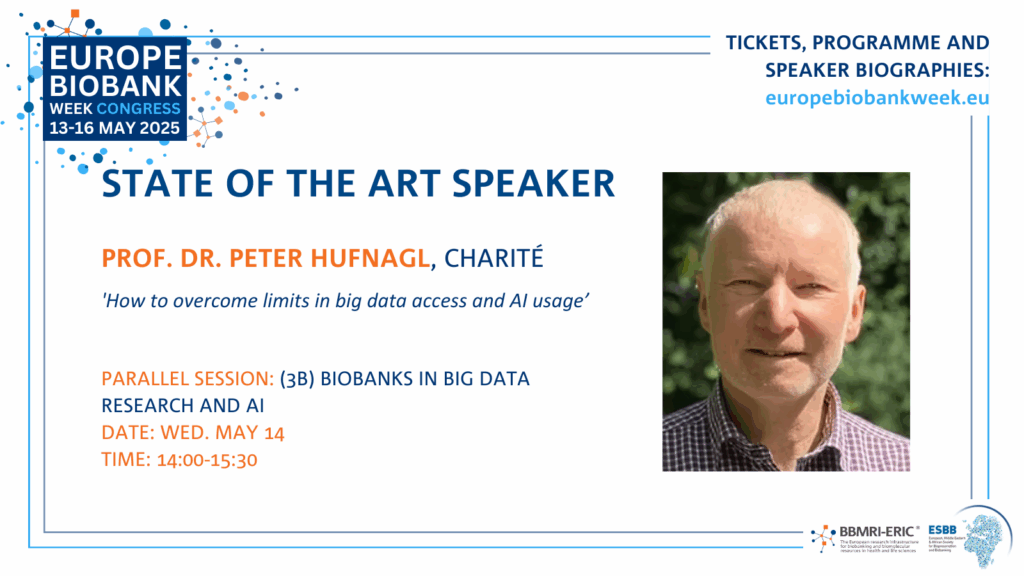
#EBW25 Previews: State-of-the-art speaker for 3B ‘Biobanks in big data research and AI’
Prof. Dr. Peter Hufnagl, Charité, will be the state-of-the-art speaker leading the panel session ‘Biobanks in big data research and AI‘. We have profiled his biography and abstract here.
Prof. Dr. Peter Hufnagl
Prof. Dr. Peter Hufnagl studied mathematics and statistics at the Academy of Mining, Freiberg. During his scientific career, Prof. Dr. Hufnagl has dealt with medical image analysis and developed various methods for characterising tumours. One focus of his work has been the development of telemedical procedures.
At Charité – Universitätsmedizin Berlin, he was head of digital pathology and co-founded the telemedicine centre and the central biobank. At the same time, he was involved in a number of innovative start-ups, for example for emergency care in airplanes.
His current focus is on the clinical application of AI methods. He is chairman of the board of the non-profit association EMPAIA International e.V., which is committed to standardisation in the use of AI applications in routine clinical practice.
Abstract: How to overcome limits in big data access and AI usage
The more comprehensive and interdisciplinary a data set is, the more difficult it is to guarantee its quality. Ensuring data quality must therefore be at the beginning of a study, especially if clinical data is also to be included. To avoid having to start from scratch again and again, one focus is on the systematic development of standardised, coordinated structures.
Based on a request for a series of cases with clinical data, whole slide images and follow-up data to several biobanks, a cohort is to be compiled automatically, taking data protection into account. As part of the “TrustMe” project, a data processing pipeline is currently under development to generate standardised datasets addressing specific clinical and research questions.
This “TrustMe“ pipeline leverages established standards for both data representation (e.g., DICOM, MIABIS) and data transmission (e.g., FHIR). Based on this framework, quality-assured whole slide imaging (WSI) data is provided, which can be analysed either centrally or in a decentralised manner using artificial intelligence (AI) applications. Therefore, the infrastructures for clinical and research data must be designed and developed jointly, otherwise they cannot be financed sustainably.
Session details
- Date: Wednesday 14 May
- Time: 14:00-15:30